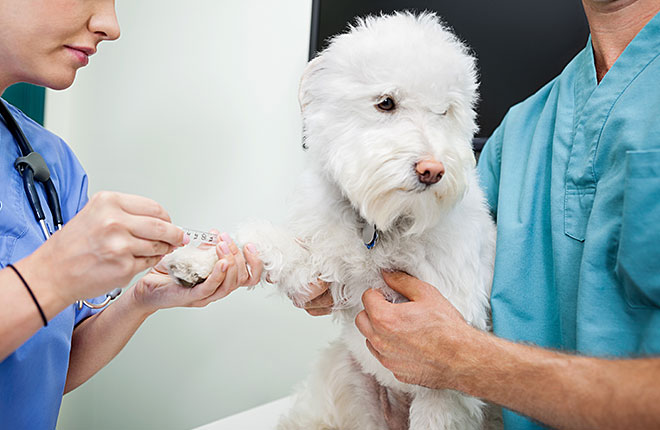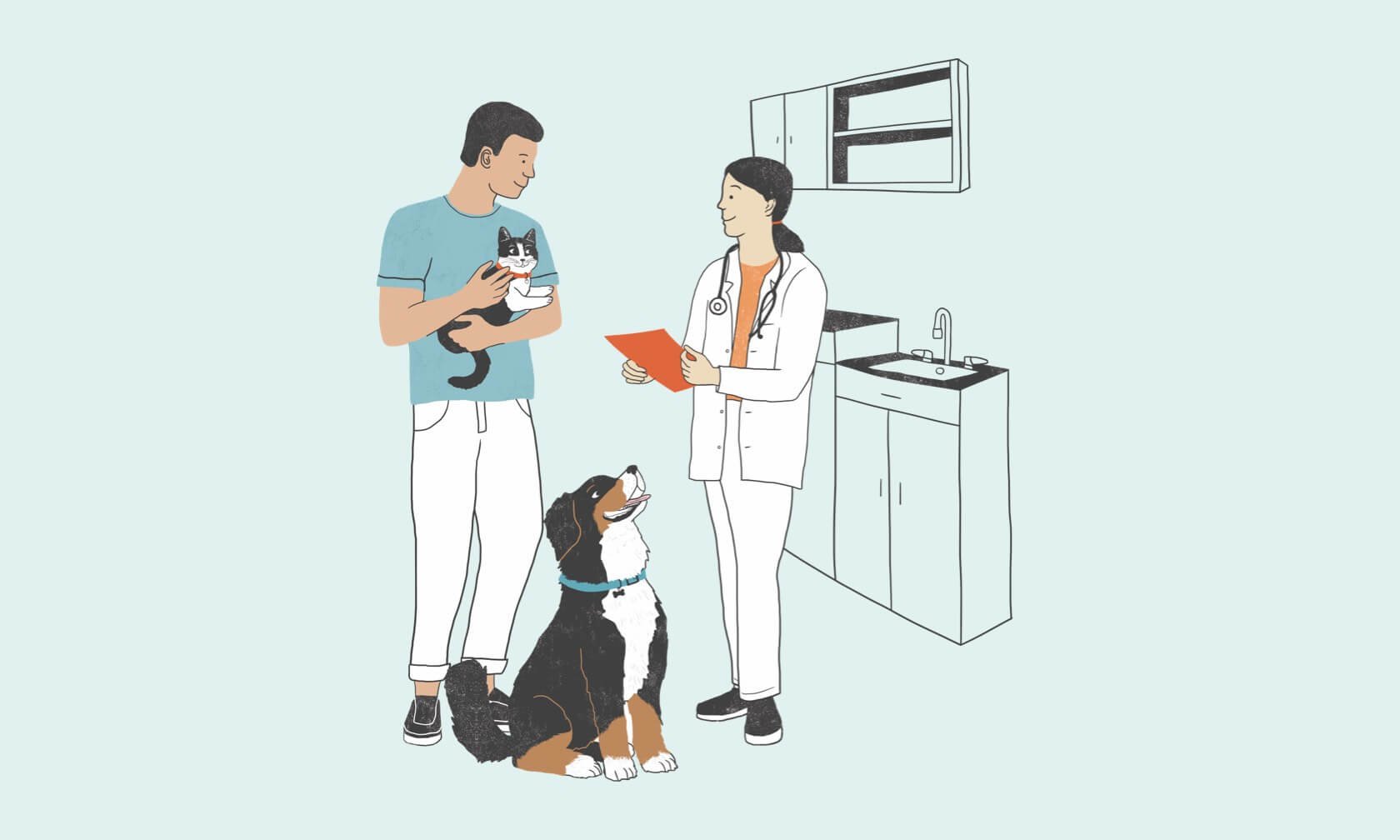Canine hypothyroidism, also known as hypothyroid disease, is a common hormonal disorder in dogs. It is most commonly caused by non-cancerous changes to the thyroid gland resulting in decreased thyroid hormone levels in the blood. The thyroid gland secretes thyroid hormone which affects the metabolic function of almost all organ systems, including heart, respiratory, nervous and musculoskeletal systems. Canine hypothyroidism is typically found in dogs that are middle-aged and older. Although many breeds can be affected, Doberman Pinschers and Golden Retrievers are the most commonly reported breeds at risk.[1]

Symptoms of hypothyroidism in dogs
Clinical signs or changes you can see in your pet result from a decreased metabolic rate and can include:[1]
- Lethargy, decreased activity
- Weight gain
- Hair loss (usually on both sides of the body)
- Poor hair growth following clipping
- Increased pigmentation of the skin
- Dry skin
- Dry, dull coat
- Incoordination
It’s important to pay close attention to your dog’s physical and behavioral changes as they age. Remember to bring any noticeable changes to your veterinarian’s attention, so they can perform the proper tests for diagnosis.
Diagnosing hypothyroidism in dogs
If your dog has clinical signs that may be consistent with hypothyroidism, your veterinarian may recommend the following testing:
- Total T4 blood test. This test screens the function of the thyroid gland and is included in many routine screening panels. A lower than normal level of T4 (thyroxine) is consistent with hypothyroidism. T4 is usually interpreted in conjunction with a full thyroid panel to make a definitive diagnosis of hypothyroidism.
- FT4 (Free T4). The active thyroid hormone that can enter cells. This test is part of a complete thyroid panel.
- TSH (Thyroid Stimulating Hormone). Tells the thyroid gland to make more thyroid hormone. This test is part of a complete thyroid panel.
- Blood chemistry panel. This blood test may reveal other diseases and help your doctor interpret findings from the physical examination.
- Elevated cholesterol is present in approximately 75% of dogs with hypothyroidism.[1]
- Complete blood count (CBC). This test determines if anemia (low red blood cell count) is present, a clinical finding in 30% of dogs with hypothyroidism.[1]
- Urinalysis (urine test). While usually normal, this test helps rule out any concurrent disease and evaluate urinary tract health.
Treating hypothyroidism in dogs
If hypothyroidism is confirmed in your dog, a daily thyroid hormone medication will be prescribed for the duration of your dog’s life. This medication should return your dog’s T4 levels to normal and symptoms will resolve. It is important to continue this medication indefinitely or signs could return.
Routine monitoring of thyroid level is needed to adjust medication doses, especially during the initial phases of treatment. Your veterinarian will recommend that your dog return for exams and routine T4 testing until the proper dose of medication is determined.
Once the proper dose is determined, your dog will continue to be monitored on a regular basis to ensure the thyroid does not become overactive. Your veterinarian may need to make further adjustments to the dose of medication for your dog.
With proper medication and monitoring, your dog’s clinical signs will improve, and they can enjoy a normal life.
ZPC-00535R1
- Feldman, Edward et al Canine & Feline Endocrinology 4th Ed Chapter 3: Hypothyroidism. J. Scott Moncreiff. 80-95



